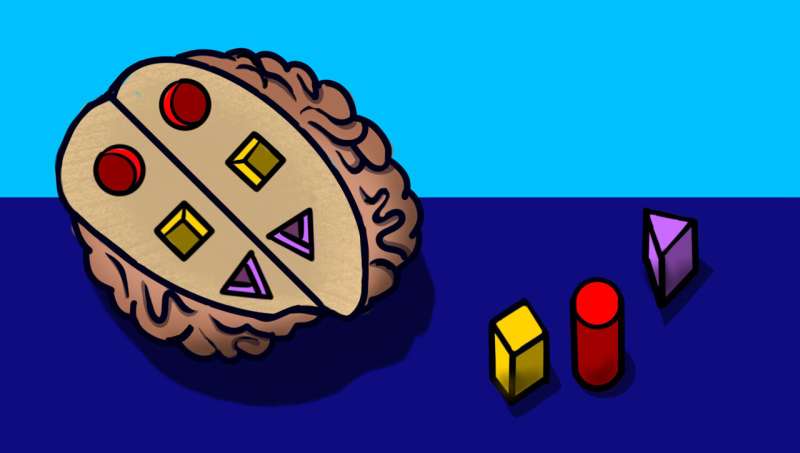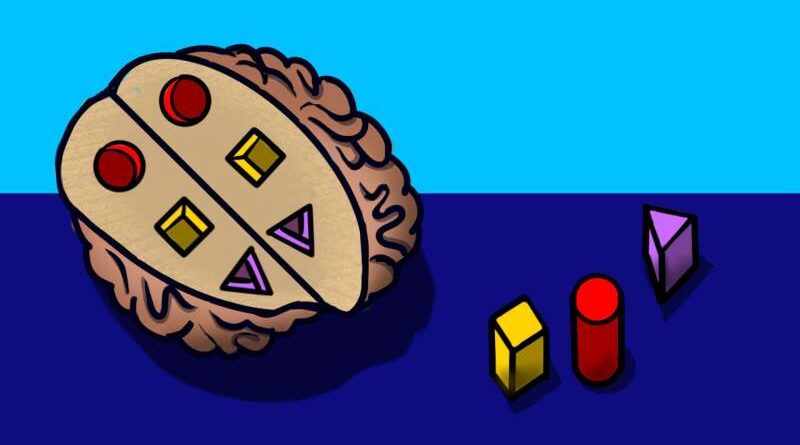Cognitive behavioral therapy improves brain circuits to relieve stress

Researchers at Stanford Medicine and their colleagues have found that choosing treatments based on a patient’s type of depression increases the chances of success. Credit: Emily Moskal/Stanford Medicine
Psychotherapy, which is one of the most common treatments for depression, can teach coping skills, strengthen positive behaviors and counter negative thoughts. But can changing thoughts and behaviors lead to lasting changes in the brain?
A new study led by Stanford Medicine found that it can—if the treatment is matched with the right patients. In a study of adults with depression and obesity—a difficult combination to treat—problem-focused cognitive behavioral therapy reduced depression in a third of patients. These patients also show adaptive changes in their brain circuitry.
Furthermore, these neural changes were evident after only two months of treatment and could predict which patients would benefit from long-term treatment.
The findings add to the evidence that choosing treatments based on the neurological basis of a patient’s depression—which varies from person to person—increases the chances of success.
The same concept is already common practice in other medical specialties.
“If you had chest pains, your doctor would suggest some tests—an electrocardiogram, a heart scan, maybe a blood test—to find the cause and what treatment options should be considered,” said Leanne Williams, Ph.D., Vincent VC. Woo Professor, professor of cognitive and behavioral sciences, and director of Stanford Medicine’s Center for Precision Mental Health and Wellness.
“However with depression, we don’t have tests that are used. You have this broad understanding of emotional pain, but it’s a trial-and-error approach to choosing a treatment, because we don’t have tests of what’s going on in the brain. .”
Williams and Jun Ma, MD, Ph.D., professor of medicine and geriatrics at the University of Illinois at Chicago, are co-authors of the study published Sept. 4 to Science Translational Medicine. The work is part of a larger clinical trial called RAINBOW (Proposed Research to Improve Attitude and Weight).
Solving problems
The type of cognitive-behavioral therapy used in the experiment, known as problem-solving therapy, is designed to improve the cognitive skills used to plan, solve problems, and organize redundant information. The doctor guides patients to identify real problems in life—a conflict with a roommate—to think about a solution and choose the best one.
This cognitive ability depends on a specific set of neurons working together, known as a cognitive control circuit.
Previous work from the Williams lab, which identified six types of depression based on brain activity, estimated that a quarter of people with depression have impaired cognitive function. their cognitive control circuits—either too much or too little activity.
Participants in the new study were adults diagnosed with major depression and obesity, a combination of symptoms that often indicate problems with the cognitive control circuit. Patients with this condition often do not respond well to antidepressants: They have a low response rate of 17%.
Of the 108 participants, 59 entered a year-long problem-solving treatment program in addition to their usual care, such as medication and visits to a primary care physician. Another 49 received only standard care.
They were given fMRI brain scans at the beginning of the study, then after two months, six months, 12 months and 24 months. During the brain scan, the participants completed an experiment that involved clicking or not pressing a button according to the text on the screen—an activity known to engage the cognitive control circuit. The experiment allowed the researchers to measure changes in the activity of that circuit throughout the study period.
“We wanted to see if this particular problem-solving therapy could change the cognitive control circuit,” said Xue Zhang, Ph.D., a postdoctoral fellow in psychiatry who is the lead author. of education.
With each brain scan, participants also completed standardized questionnaires that assessed their problem-solving abilities and depressive symptoms.
Working smart
As with any treatment for depression, problem-solving therapy did not work for everyone. But 32% of participants responded to the treatment, meaning their severe symptoms were reduced by half or more.
“That’s a big improvement over the 17% response rate for antidepressants,” Zhang said.
When the researchers analyzed the brain scans, they found that in the group receiving only conventional care, the cognitive control circuit that was significantly weakened during the study was associated with a worsening of the ability to solve problems.
But in the group receiving treatment, the pattern was reversed: Decreased performance related to stronger problem-solving abilities. Researchers think that this may be due to their brain learning, through therapy, to process information more effectively.
“We believe that they have more efficient cognitive processing, which means that they now need less resources in the cognitive control circuit to perform the same behavior,” Zhang said.
Before the treatment, their brains were still working hard; now, they were working smarter.
Both groups, in general, improved in their overall depression scores. But when Zhang delved deeper into the 20-point stress assessment, he found that stress symptoms were more important in cognitive control — “feeling everything as an effort” — benefited from the effective cognitive function gained in therapy.
“We see that we can point to a direct improvement in the cognitive aspect of depression, which is the one that causes disability because it has the greatest impact on real-world work,” Williams said.
Indeed, some participants reported that problem-solving therapy helped them think more clearly, allowing them to return to work, resume hobbies, and manage social relationships.
The fastest way to recovery
Just two months into the study, brain scans showed changes in the functioning of the cognitive control circuit in the treatment group.
“It’s important, because it tells us that there’s real brain change happening early, and that’s when you can expect brain plasticity,” Williams said. “Solving the world’s problems really changes the brain in a few months.”
The idea that thoughts and behaviors can change brain circuits is not so different from how exercise-behavior strengthens muscles, he added.
The researchers found that these early changes indicated which patients were responding to treatment and could improve problem-solving skills and depression symptoms six months, 12 months and even a year later. ‘a that the treatment is over, 24 months. That means that the brain test can be used to predict which patients would be the best candidates for treatment to solve the problems.
It’s a step toward Williams’ vision of positive psychology — using brain activity to match patients with treatments that can help them, speeding up their recovery.
“It really advances science,” Zhang said. “But it’s also going to change a lot of people’s lives.”
Researchers from the University of Washington, the University of Pittsburgh School of Medicine and The Ohio State University also contributed to the work.
Additional information:
Xue Zhang et al, Variables of cognitive control associated with problem-solving ability and outcome of depressive symptoms over a 24-month period, Science Translational Medicine (2024). DOI: 10.1126/scitranslmed.adh3172
Provided by Stanford University Medical Center
Excerpt: Cognitive behavioral therapy improves brain circuits to relieve stress (2024, September 6) retrieved on September 7, 2024 from https://medicalxpress.com/news/2024-09-cognitive- behavioral-therapy-brain-circuits.html
This document is subject to copyright. Except for any legitimate activity for the purpose of private study or research, no part may be reproduced without written permission. Content is provided for informational purposes only.
#Cognitive #behavioral #therapy #improves #brain #circuits #relieve #stress
